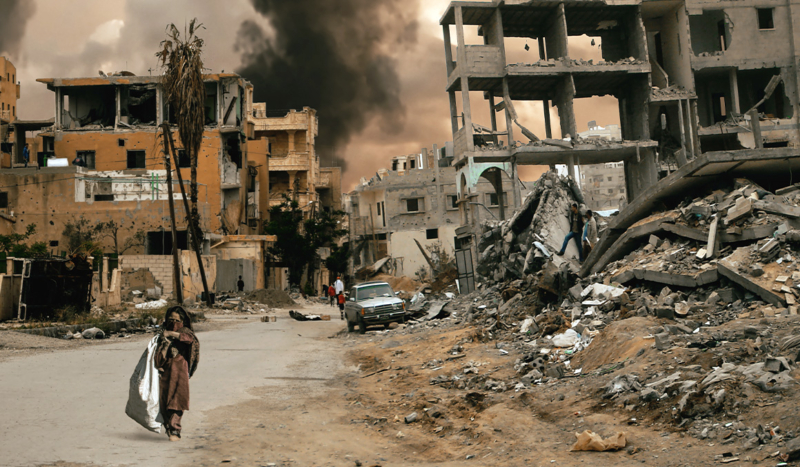
CV NEWS FEED // The Catholic Near East Welfare Association (CNEWA) recently released a new report on the current status of humanitarian aid in Gaza as well as updates regarding the Christian community there.
According to the June 20 report by regional director Joseph Hazboun of the CNEWA-Pontifical Mission’s Jerusalem office, Gazans continue to face decreased humanitarian aid supplies, a rise in civilian casualties, displacement, and famine among other grave concerns.
The Gazan Christian community has suffered the devastating loss of many of its churches, but continues to provide humanitarian aid and shelter from its remaining structures to both the faithful and the surrounding community.
Humanitarian Aid in the Gaza Strip at Large
“The flow of humanitarian aid into the Gaza Strip, where relief supplies have decreased by 67 percent since 7 May, is insufficient to meet the soaring needs of 2.3 million people, most of them homeless,” Hazboun states.
UNICEF found an estimated 1.7 million Gazans, which amounts to 75% of the population, have been internally displaced—in addition, 17,000 children are “unaccompanied or separated from their parents,” according to the CNEWA report.
For its part, the CNEWA-Pontifical Mission has been providing humanitarian aid in Gaza since March 2024, distributing critical food supplies, as well as medicine and medical supplies, and diesel fuel that was used for the over two months to pump water to the displaced being served by the Orthodox parish in the al Zeitoun neighborhood of Gaza city.
Ecumenical Aid Efforts in Gaza’s Christian Community
Despite “almost all church institutions in Gaza” suffering moderate damage or total destruction, the report Hazbourn notes that the Christian community has remained active in its efforts to provide shelter and aid to members of the faithful and the surrounding community.
The Near East Council of Churches (NECC) has continued to remain active, with the exception of a short period during which it ceased its coordinated operations with Mother and Child Clinic in Rafah beginning May 6 when the Israeli military was controlling the Rafah crossing, Hazbourn reports.
The Greek Orthodox Church of St Porphyrios and the Roman Catholic Church of the Holy Family currently shelter 91 and 170 families respectively, a total of nearly 800 Gaza Christians.
Hazbourn notes that in addition to serving families in their own faith communities, Holy Family Church has continuously worked to provide food and bottled water to the surrounding community, while St Porphyrios Church has begun channeling electricity from its own diesel generator to an adjacent mosque in order to help pump water from its well to the community.

